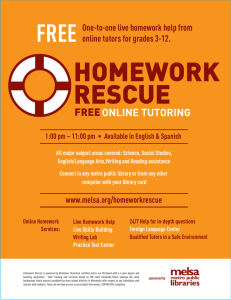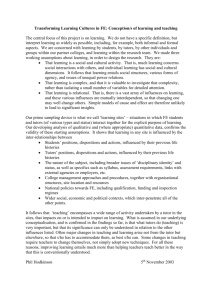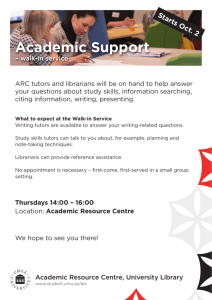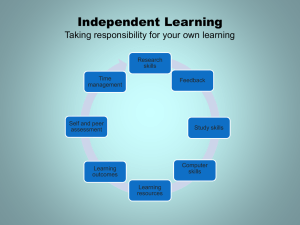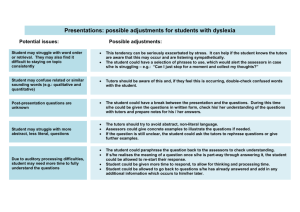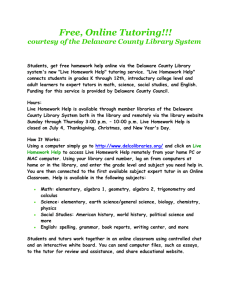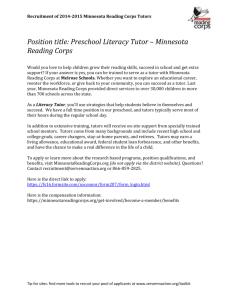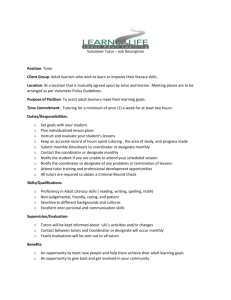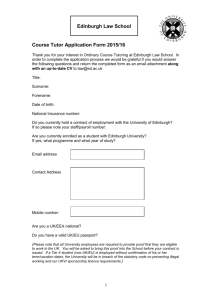Collaborative learning through peer
advertisement
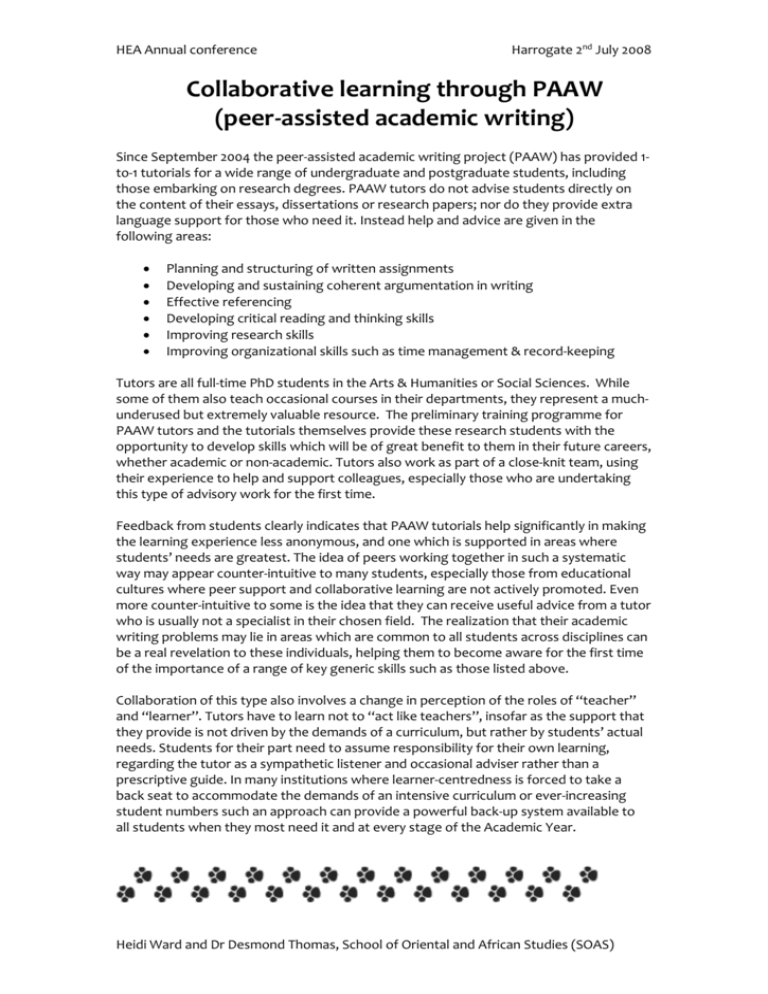
HEA Annual conference Harrogate 2nd July 2008 Collaborative learning through PAAW (peer-assisted academic writing) Since September 2004 the peer-assisted academic writing project (PAAW) has provided 1to-1 tutorials for a wide range of undergraduate and postgraduate students, including those embarking on research degrees. PAAW tutors do not advise students directly on the content of their essays, dissertations or research papers; nor do they provide extra language support for those who need it. Instead help and advice are given in the following areas: Planning and structuring of written assignments Developing and sustaining coherent argumentation in writing Effective referencing Developing critical reading and thinking skills Improving research skills Improving organizational skills such as time management & record-keeping Tutors are all full-time PhD students in the Arts & Humanities or Social Sciences. While some of them also teach occasional courses in their departments, they represent a muchunderused but extremely valuable resource. The preliminary training programme for PAAW tutors and the tutorials themselves provide these research students with the opportunity to develop skills which will be of great benefit to them in their future careers, whether academic or non-academic. Tutors also work as part of a close-knit team, using their experience to help and support colleagues, especially those who are undertaking this type of advisory work for the first time. Feedback from students clearly indicates that PAAW tutorials help significantly in making the learning experience less anonymous, and one which is supported in areas where students’ needs are greatest. The idea of peers working together in such a systematic way may appear counter-intuitive to many students, especially those from educational cultures where peer support and collaborative learning are not actively promoted. Even more counter-intuitive to some is the idea that they can receive useful advice from a tutor who is usually not a specialist in their chosen field. The realization that their academic writing problems may lie in areas which are common to all students across disciplines can be a real revelation to these individuals, helping them to become aware for the first time of the importance of a range of key generic skills such as those listed above. Collaboration of this type also involves a change in perception of the roles of “teacher” and “learner”. Tutors have to learn not to “act like teachers”, insofar as the support that they provide is not driven by the demands of a curriculum, but rather by students’ actual needs. Students for their part need to assume responsibility for their own learning, regarding the tutor as a sympathetic listener and occasional adviser rather than a prescriptive guide. In many institutions where learner-centredness is forced to take a back seat to accommodate the demands of an intensive curriculum or ever-increasing student numbers such an approach can provide a powerful back-up system available to all students when they most need it and at every stage of the Academic Year. Heidi Ward and Dr Desmond Thomas, School of Oriental and African Studies (SOAS)


